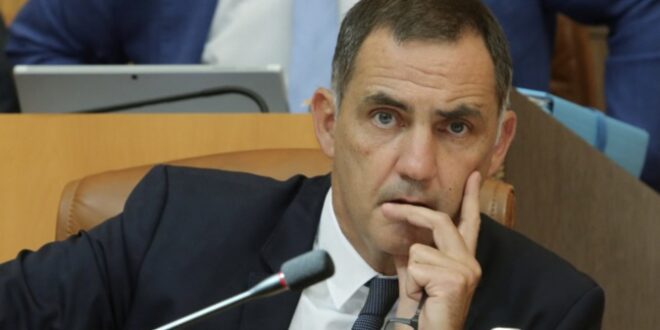Agreement provides for island’s institutions to have regulatory capacity, does not specify how French right once again vocal in opposition
The agreement between the French government and Corsican elected representatives on the inclusion of Corsican autonomy in the French Constitution brings the goal of a political power of its own on the Mediterranean island a little closer. But, how does this power look like? What stages are still to be completed, and could the process still be derailed? Let’s look.
What is the importance of the 12 March agreement?
This agreement was seen as essential for the process towards autonomy to move forward. The French Interior Ministry and Corsica’s elected representatives have been discussing its contents, known as the Beauvau process, for months.
The agreement made public this week provides that Corsica will be autonomous, that its Assembly will have regulatory powers, and that Corsicans will be recognized as a “historical, linguistic, and cultural community”.
The Corsican government president, Gilles Simeoni, considers that “an important step has been taken,” and has called for the autonomy law to incorporate not only the capacity to pass laws, but also “the necessary financial and fiscal means” to implement them.
Will Corsica really be allowed to pass its own laws?
The agreement provides for two levels of regulatory capacity. On the one hand, the Corsican Collectivity will be allowed to adapt laws and regulations previously enacted by French central institutions. On the other hand, the deal allows Corsica to pass its own rules, without going through the French Parliament each time.
These two issues will have to be addressed by organic law. It is therefore not specified at this stage what specific status the Corsica rules will have. Within the French Republic, New Caledonia and Polynesia have been for years adopting their own regulations, known as lois de pays. However, they are subject to the control of the Council of State and, ultimately, the Constitutional Council.
What about the other main demands of Corsican nationalism?
Apart from law-making powers, Corsican nationalism has expressed two other major goals for decades—the Corsican Assembly asked for them in 2013—, namely the co-official status of Corsican and the creation of a resident status. Neither is mentioned in the agreement between the French government and Corsican representatives. In fact, French Interior Minister Gérald Darmanin stressed this as he defended the agreement from criticism: “Neither the [Corsican] people, the resident status, nor the co-official status of the language are mentioned.”
What do the pro-independence parties say?
The agreement satisfies Corsica’s autonomist parties, but has also been welcomed by the main pro-independence party in the island’s Assembly, Core in Fronte. Paul-Félix Benedetti, the party’s president, described the pact as a step forward for Corsican institutions’ regulatory capacity. Still, he warned that, for his party, this is only”a small step” towards full sovereignty.
Nazione (the party into which the other pro-independence party represented in the Assembly, Corsica Libera, has been integrated) has denounced the agreement as falling short of the Corsican government’s proposal in 2023.
What now?
This week’s agreement is political and not binding. The next step will be a vote in the Corsican Assembly on the agreement. After that, a constitutional reform law—which could contain other amendments—will need to be passed. The French Constitution reform will have to be approved by the National Assembly, by the Senate, and by the meeting of the two chambers, the Congress, which will have to validate it by a three-fifths majority. A referendum is still planned in Corsica to definitively greenlight the autonomy proposal.
Will it be an easy road?
Not necessarily. The smoothest part of the process will most likely be approval in the Corsican Assembly, which could come at the end of this month. The moment of truth will come when the proposal, already drafted into law, reaches the French Parliament. The French right, which holds a majority in the Senate, opposes law-making powers for Corsica. The Senate head of Les Républicains, Bruno Retailleau, has said that the adaptation of laws by the Corsican Collectivity might be acceptable, but not the island’s Assembly capacity to pass rules. As the deal stands, Retailleau said, his party’s position “will be ’no’.”
This news was originally published by Nationalia.
—————————-
Photo: Serokê Konseya Rêvebir a Korsîkayê Gilles Simeoni/Corsenetinfos.corsica
 Infowelat Enformasyon Ji Bo Welat
Infowelat Enformasyon Ji Bo Welat




